
Emerging trends in Europe: An outlook from multiple perspectives

Rule 2a-5 overview: Good faith determinations of fair value

Rule 18f-4 overview: Regulatory framework changes for derivatives

Putting home ownership within reach for a diverse workforce

Liquidity management: A renewed focus for European funds

Rule 18f-4: The limited use exception

Rule 18f-4: An in-depth look at the derivative risk management program and value-at-risk

Smoothing private equity’s path to opportunity

Administrator accountability: 5 questions to evaluate outsourcing risks

Commercial real estate in 2020: Keeping up with the pace of change

IRC Section 305(c): Deemed distributions and related regulations

Key considerations for launching an ILP

A first look at the new fund of funds rule

Unique requirements of large private equity firms

What are exchange-traded funds?

MSTs: An efficient and cost-effective solution for operating a mutual fund

High-yield bond issuance: 5 traits lawyers should look for in a service provider

Luxembourg funds: 5 indicators of efficient onboarding

The benefits of bundling services for Luxembourg regulated funds

Easier onboarding: What to look for in an administrator

Combined strength: Luxembourg and your fund administrator

3 tips to maintain flexibility in supply chain management

Private equity and the full-service administrator

4 reasons your Luxembourg fund needs an in-market administrator

Depositary services: A brief overview

Insource or outsource? 10 considerations

Refining your search for an insurance custodian

The reciprocal benefits of a custodial partnership: A case study

The benefits of a full-service warehouse custodian

4 questions you should ask about your custodian
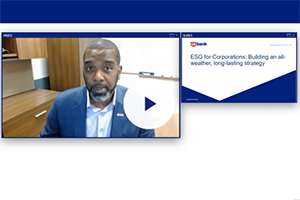
Webinar: ESG for Corporations: Building an all-weather, long-lasting strategy

Preparing for your custodian conversion

Service provider due diligence and selection best practices

Inherent flexibility and other benefits of collective investment trusts

Maximizing your deductions: Section 179 and Bonus Depreciation

Turn risk into opportunity with supply chain finance

Webinar: What’s new in international payments?

Best practices on securing cardholder data

Webinar: Managing foreign exchange risk in unpredictable markets

Hospitals face cybersecurity risks in surprising new ways
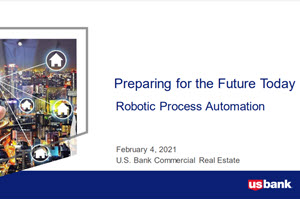
Webinar: Robotic process automation

Tactical Treasury: Fraud prevention is a never-ending task

Post-pandemic fraud prevention lessons for local governments
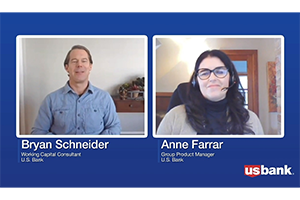
Webinar: Empower your AP automation with strategic intelligence
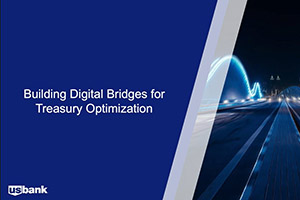
Webinar: Building digital bridges for treasury optimization
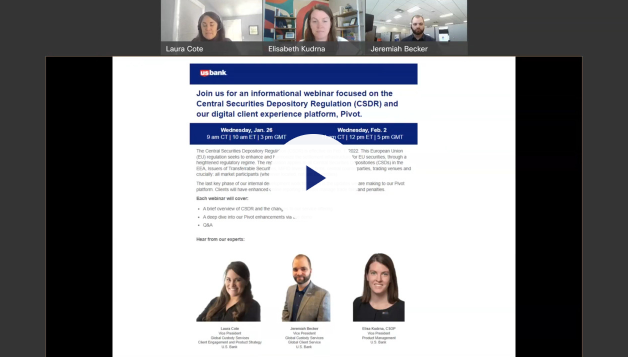
Webinar: Recording of the Central Securities Depository Regulation and Pivot

Evaluating interest rate risk creating risk management strategy

Authenticating cardholder data reduce e-commerce fraud
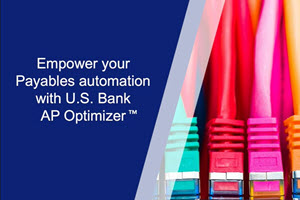
Webinar: Digitize your AP processes to optimize results

Risk management strategies for foreign exchange hedging
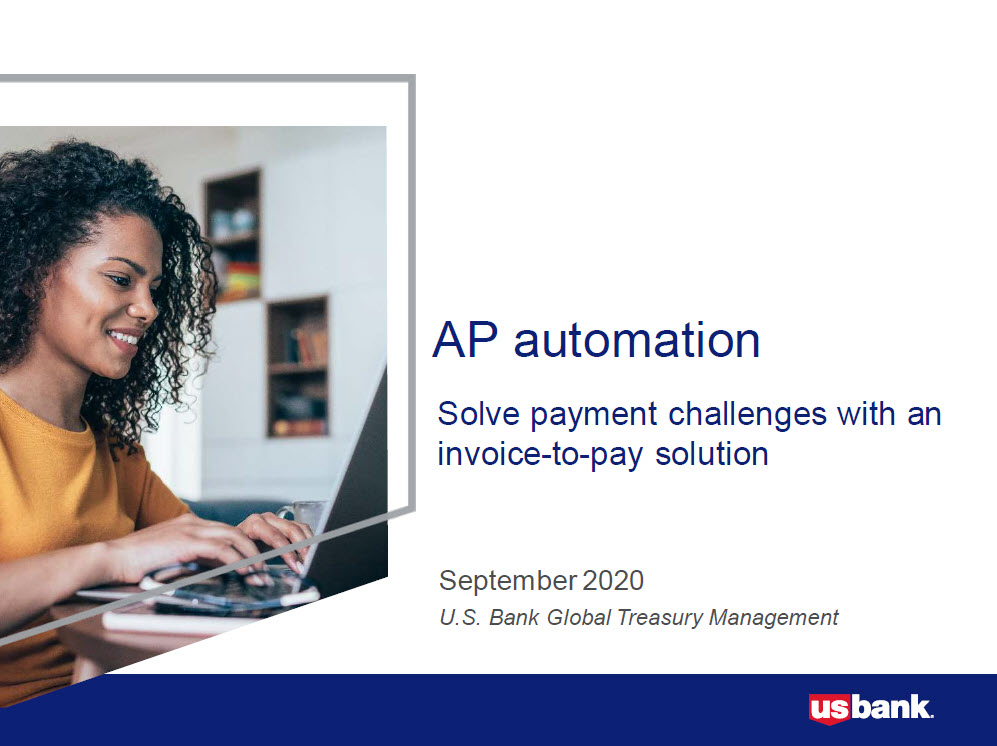
Webinar: AP automation—solve payment challenges with an invoice-to-pay solution

What is CSDR, and how will you be affected?
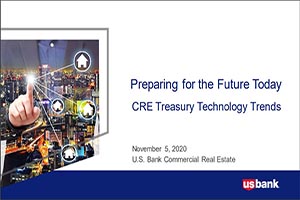
Webinar: CRE technology trends
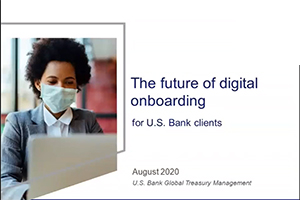
Webinar: The future of digital onboarding for U.S. Bank clients
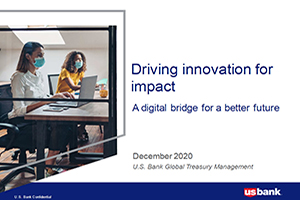
Webinar: Driving innovation to impact treasury management
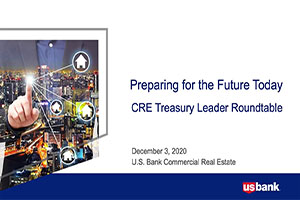
Webinar: CRE treasury leader roundtable

Proactive ways to fight vendor fraud
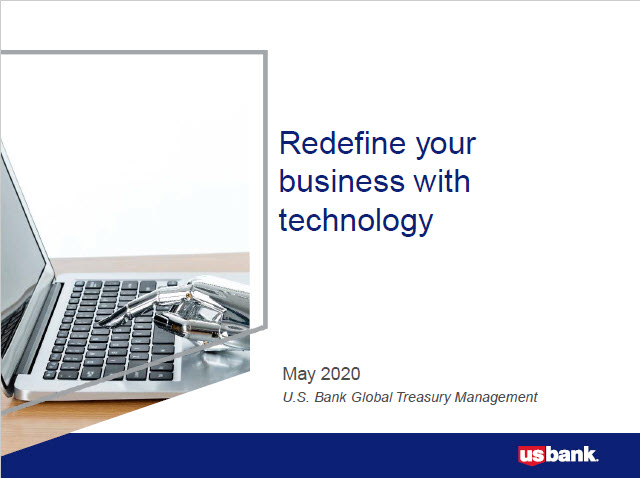
Webinar: Redefine your business with technology
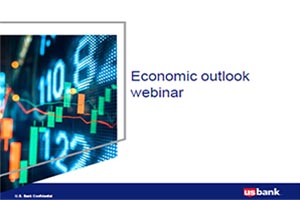
Webinar: Economic, political and policy insights

4 tips for protecting your business against Coronavirus-related scams

The latest on cybersecurity: Mobile fraud and privacy concerns
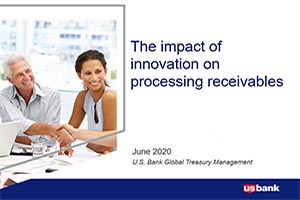
Webinar: The impact of innovation on processing receivables

5 Ways to protect your government agency from payment fraud

Redefining beneficial ownership in the Cayman Islands

Cayman Islands’ Private Funds Law: What you need to know

The latest on cybersecurity: Vulnerability testing and third-party software
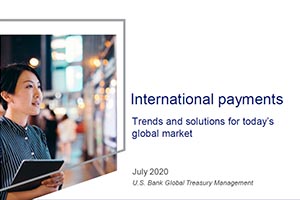
Webinar: International payments

5 steps you should take after a major data breach

Fight the battle against payments fraud

Cybercrisis management: Are you ready to respond?

Complying with changes in fund regulations

The cyber insurance question: Additional protection beyond prevention

Protecting your business from fraud

The password: Enhancing security and usability

Avoiding the pitfalls of warehouse lending

Fraud prevention checklist

Why KYC — for organizations

Cybersecurity – Protecting client data through industry best practices

Business risk management for owners of small companies

Government agency credit card programs and PCI compliance

BEC: Recognize a scam

How to improve your business network security

Webinar: CSM corporation re-thinks AP

Adjust collections to limit impact of USPS delivery changes

Increase working capital with Commercial Card Optimization

Automate escheatment for accounts payable to save time and money

Addressing financial uncertainty in international business
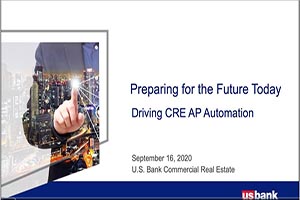
Webinar: AP automation for commercial real estate

The benefits of payment digitization: Pushing for simplicity

5 winning strategies for managing liquidity in volatile times

Artificial intelligence in finance: Defining the terms

The future of financial leadership: More strategy, fewer spreadsheets

Alternative investments: How to track returns and meet your goals

Choosing your M&A escrow partner

Employee benefit plan management: trustee vs. custodian

Empowering managers with data automation and integration

Challenging market outlook reveals the power of partnership

Why retail merchandise returns will be a differentiator in 2022

High-cost housing and down payment options in relocation

Middle-market direct lending: Obstacles and opportunities

The client-focused mindset: Adapting to differing personality types

The client-focused mindset: How to network effectively

The client-focused mindset: What do clients expect?

Innovative payroll solutions may help attract hourly workers

Automated escheatment – learn how to prevent and resolve unclaimed property
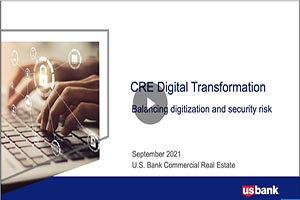
Webinar: CRE Digital Transformation – Balancing Digitization with cybersecurity risk

Webinar: Reviving mobility, what to expect

ABCs of ARP: Answers to American Rescue Plan questions for counties
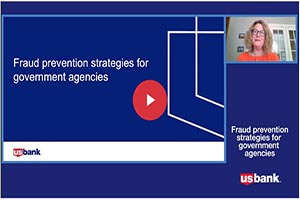
Webinar: Fraud prevention and mitigation for government agencies

An asset manager’s secret to saving time and money

Webinar: DEI tips for transforming your mobility program

For today's relocating home buyers, time and money are everything

10 tips on how to run a successful family business

Crypto + Relo: Mobility industry impacts

Empowering team members

How entrepreneurs can plan for what matters most

Streamline operations with all-in-one small business financial support

Business tips and advice for Black entrepreneurs

Opening a business on a budget during COVID-19

How to fund your business without using 401(k) savings

How to test new business ideas

How to get started creating your business plan

How to redefine challenges with business collaboration

8 ways to increase employee engagement

The role of ethics in the hiring process

How to hire employees: Employee referral vs. external hiring

Tips for building a successful customer loyalty program

Give a prepaid rewards card for employee recognition

Checklist: Increase lead generation with website optimization

How to reward employees and teams who perform well

5 steps for creating an employee recognition program

Gift cards can extend ROI into 2022

Omnichannel retail: 4 best practices for navigating the new normal

Is your restaurant Google-friendly?

3 simple brand awareness tips for your business

How a small business owner is making the workplace work for women

What you should know about licensing agreements

The growing importance of a strong corporate culture

Business credit card 101

How to apply for a business credit card

Meet your business credit card support team

Prioritizing payroll during the COVID-19 pandemic

How jumbo loans can help home buyers and your builder business

Break free from cash flow management constraints

5 tips for managing your business cash flow

Improve online presence your business

How Shampoo’ed is transforming hair and inspiring entrepreneurs

The San Francisco bridal shop that’s been making memories for 30 years

How Al’s Breakfast is bringing people together

Celebrity Cake Studio’s two decades of growth and success

In a digital world, Liberty Puzzles embraces true connection

How a bar trivia company went digital during COVID-19

How a travel clothing retailer is staying true to its brand values

How community gave life to lifestyle boutique Les Sol

How a group fitness studio made the most of online workouts

How to build a content team

How Wenonah Canoe is making a boom in business last

How (and why) to get your business supplier diversity certification

Use this one simple email marketing tip to increase your reach

Year-end financial checklist

How do interest rates affect investments?

Webinar: Uncover the cost: International trip

How having savings gives you peace of mind

Allowance basics for parents and kids

Tips to overcome three common savings hurdles

Helpful tips for safe and smart charitable giving

5 tips to use your credit card wisely and steer clear of debt

30-day adulting challenge: Financial wellness tasks to complete in a month

Travel for less: Smart (not cheap) ways to spend less on your next trip

Real world advice: How parents are teaching their kids about money

How to stop living paycheck to paycheck post-pay increase

Practical money tips we've learned from our dads

How to cut mindless spending: real tips from real people

6 ways to spring clean your finances and save money year-round

How to increase your savings

5 tips to use your credit card wisely and steer clear of debt

How to spot a credit repair scam


